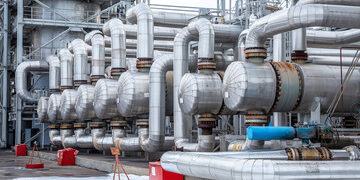Construction chemicals play a crucial role in enhancing the durability, strength, and resilience of buildings and infrastructure. Among the most vital applications of these chemicals is waterproofing, which ensures the longevity of structures by preventing water ingress and damage. With the increasing demand for high-quality construction materials, construction chemicals suppliers are continuously innovating to provide advanced waterproofing solutions tailored to modern construction needs.
In this article, we will explore the importance of construction chemicals in waterproofing, the different types of waterproofing solutions available, and the key factors to consider when choosing the right supplier for your construction projects.
Importance of Waterproofing in Construction
Waterproofing is an essential process in construction, as it protects buildings from moisture damage, structural degradation, and mold growth. Without effective waterproofing, structures are prone to water seepage, which can lead to severe issues such as weakened foundations, corrosion of reinforcements, and indoor health hazards.
1. Prevention of Structural Damage
Water intrusion can compromise the strength of a building by corroding steel reinforcements and weakening concrete. Effective waterproofing helps in maintaining the structural integrity of buildings, ensuring safety and longevity.
2. Improved Indoor Air Quality
Damp conditions promote mold and mildew growth, which can negatively impact indoor air quality. Proper waterproofing prevents excessive moisture buildup, creating a healthier living and working environment.
3. Energy Efficiency
Waterproofing solutions help in maintaining thermal insulation by preventing heat loss due to moisture infiltration. This leads to lower energy consumption and reduced utility costs.
Types of Waterproofing Solutions
There are several types of waterproofing solutions used in construction, each with its unique properties and applications. Selecting the right waterproofing method depends on factors such as the type of structure, environmental conditions, and budget considerations.
1. Cementitious Waterproofing
Cementitious waterproofing is one of the most commonly used methods in construction. It involves the application of cement-based coatings that form a waterproof barrier. This type of waterproofing is widely used for basements, water tanks, and bathrooms.
- Easy to apply and cost-effective
- Ideal for areas exposed to high water pressure
- Provides excellent adhesion to concrete surfaces
2. Liquid Membrane Waterproofing
Liquid membranes are applied as a liquid coating, which then forms a flexible and seamless waterproof layer. These solutions are highly effective for roofs, terraces, and balconies.
- Offers high flexibility and crack-bridging capabilities
- Provides excellent UV resistance
- Available in different formulations such as polyurethane and acrylic coatings
3. Bituminous Waterproofing
Bituminous waterproofing involves the use of bitumen-based materials to create a water-resistant layer. It is commonly used in roofing and foundation waterproofing applications.
- Highly durable and long-lasting
- Suitable for both residential and commercial structures
- Effective against water and chemical exposure
4. Polyurethane Waterproofing
Polyurethane waterproofing is a high-performance solution known for its flexibility and resistance to extreme weather conditions. It is commonly used for terraces, decks, and bridges.
- Provides seamless coverage with excellent elasticity
- Resistant to abrasion and chemicals
- Suitable for both new construction and renovation projects
5. Crystalline Waterproofing
Crystalline waterproofing uses active chemicals that react with water and cement to form crystals that block water penetration. This method is highly effective for below-ground structures such as tunnels and basements.
- Self-healing properties for minor cracks
- Increases the durability of concrete structures
- Suitable for both positive and negative water pressure applications
How Construction Chemicals Suppliers Support Waterproofing Solutions
Construction chemicals suppliers play a crucial role in delivering high-quality materials and innovative solutions to meet the evolving demands of the industry. Their contributions go beyond just supplying materials; they also provide technical expertise, research, and customized solutions tailored to specific construction needs.
1. Research and Development (R&D)
Leading suppliers invest heavily in R&D to develop advanced waterproofing products that offer superior performance, durability, and environmental sustainability. Continuous innovation helps in creating more effective and eco-friendly solutions for modern construction challenges.
2. Customized Solutions
Not all construction projects have the same requirements. Reputable suppliers offer customized waterproofing solutions based on the type of structure, climatic conditions, and specific project needs. This ensures optimal performance and cost efficiency.
3. Technical Support and Training
In addition to providing high-quality materials, suppliers often offer technical support and training for contractors, engineers, and applicators. Proper training ensures that waterproofing products are applied correctly, maximizing their effectiveness and longevity.
4. Sustainability and Green Building Solutions
Many construction chemicals suppliers are now focusing on sustainable solutions that reduce environmental impact. Eco-friendly waterproofing materials, such as low-VOC (Volatile Organic Compound) coatings and bio-based sealants, are becoming more popular in green building initiatives.
Choosing the Right Construction Chemicals Supplier
Selecting a reliable construction chemicals supplier is essential to ensure the quality and effectiveness of waterproofing solutions. Here are some key factors to consider when choosing a supplier:
1. Quality and Certification
Always opt for suppliers that provide certified and tested products that meet international standards. Quality certifications such as ISO and ASTM compliance indicate that the products have undergone rigorous testing for durability and performance.
2. Product Range and Availability
A good supplier should offer a comprehensive range of waterproofing solutions to cater to different construction needs. Additionally, timely availability of products is crucial to prevent project delays.
3. Technical Expertise and Support
Choose a supplier with extensive industry experience and a strong technical support team. Expert guidance on product selection and application can make a significant difference in achieving optimal waterproofing results.
4. Reputation and Reviews
Look for suppliers with a solid market reputation and positive customer reviews. Feedback from other contractors and builders can provide valuable insights into the reliability and performance of the supplier’s products.
5. Cost-Effectiveness
While quality should never be compromised, it is also important to consider cost-effectiveness. Compare prices and evaluate the long-term benefits of different waterproofing solutions before making a decision.
Conclusion
Waterproofing is a critical aspect of construction that ensures the durability, safety, and efficiency of buildings. With the right construction chemicals suppliers, builders can access high-quality waterproofing solutions that provide long-term protection against moisture damage.
By choosing innovative and sustainable waterproofing materials, construction professionals can enhance the lifespan of their projects while contributing to a greener and more resilient built environment. Whether it’s cementitious coatings, liquid membranes, or polyurethane-based solutions, investing in the right waterproofing techniques and suppliers is essential for the success of any construction project.
























